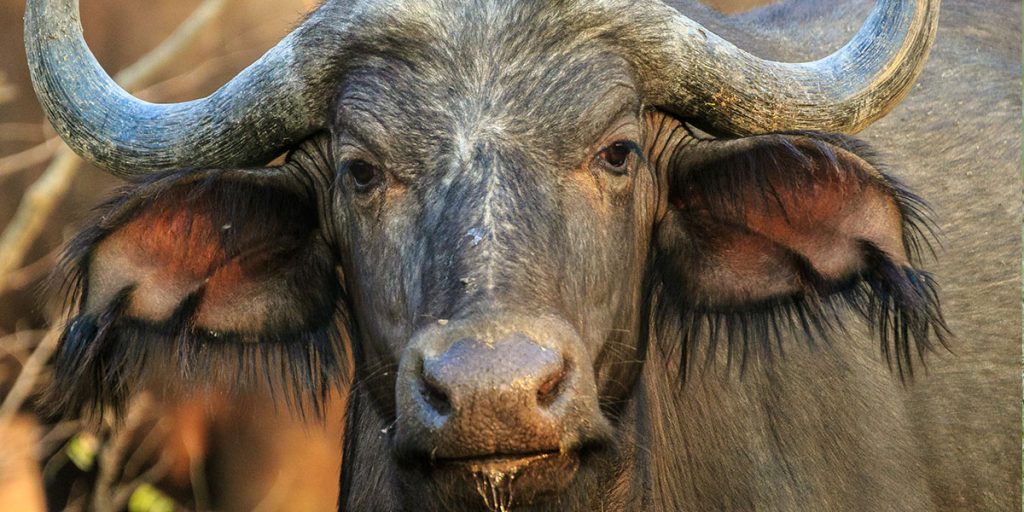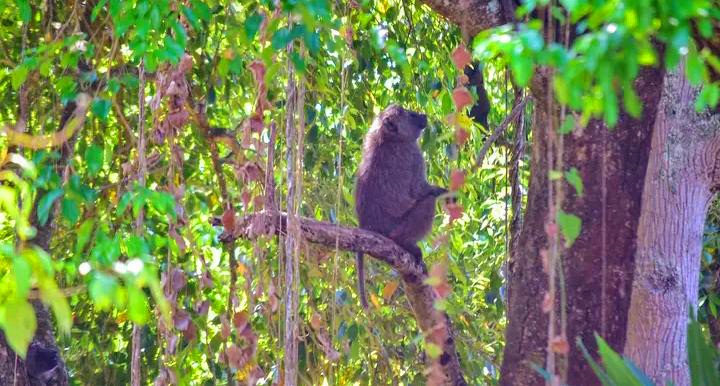Ruvubu National Park stands as a beacon of natural beauty and ecological significance in the northeastern part of Burundi. This park is the country’s largest protected area designed specifically for conserving wildlife and natural habitats. Serving as the largest national park in the country, Ruvubu doesn’t just offer sanctuary to diverse wildlife; it’s also a vital contributor to regional conservation efforts. With landscapes ranging from dense forests that harbor numerous species to sprawling savannahs teeming with herbivores and wetlands rich in aquatic life, the park presents an unmatched diversity. The Ruvubu River plays a crucial role not only in sustaining this plethora of animals but also in sculpting an ecosystem where large mammals like elephants and hippos coexist with over 200 bird species including rarities like the shoebill stork. Coupled with its cultural relevance amidst communities depending on these lands for survival, Ruvubu emerges as both an adventurer’s dream and a conservationist’s haven. Let us explore what makes Ruvubu National Park such a wonder.

Ruvubu National Park is considered the largest national park in Burundi covering 508 km2. Ruvubu National Park covers a significant amount of land on both sides of the Ruvubu River, situated in the North-East of Burundi and lies about 216 km away from Bujumbura and the park itself has about 50 kilometers of tracks. According to the records available at the Office of Tourism in Burundi, Ruvubu National Park was set up in the year 1980.
It boasts dense forests and sprawling savannahs that together host an array of wildlife including elephants, hippos, and over 200 species of birds such as the distinctive shoebill stork. The meandering Ruvubu River not only sustains this rich animal life but also shapes its vibrant landscape; it’s a lifeline for both flora and fauna here. For those seeking to connect with nature at its most raw state during their visit from June to September offers ideal conditions for wildlife spotting due to thinner vegetation around water sources. Reaching Ruvubu is part of your adventure – located about 160 kilometers from Bujumbura or roughly 90 kilometers from Gitega; You can embark on a three-to-four-hour drive across scenic vistas which could be bumpy yet thrilling! Beyond Kigali Tours offers spectacular views, birdwatching spots, and guided walks through diverse ecosystems.
Also See: Flying to Bujumbura
Diverse Wildlife of Burundi’s Natural Gem
The diverse wildlife of Ruvubu National Park, nestled in the heart of Burundi, is a testament to its lush and varied ecosystems. From wetlands and grasslands to dense woodlands and riverine forests, this park provides an ideal habitat for an expansive variety of bird species, making it a haven for ornithologists and nature enthusiasts. Its remarkable plant life not only adds to the visual allure but also sustains the rich biodiversity within its borders.
Many plants found here are unique to the region, supporting both wildlife populations and local communities through their medicinal properties. Despite these natural treasures, Ruvubu faces threats from agricultural expansion, poaching, and illegal logging which put immense pressure on its delicate ecosystems. In response, Beyond Kigali Tours collaborates with conservation initiatives focused on preserving this invaluable ecological marvel.
We work closely with locals promoting eco-friendly practices ensuring sustainable tourism that respects our shared environment while inviting visitors worldwide! Share your experiences or join us as we explore more ways together in safeguarding what makes Ruvubu National Park truly special!
It is this flora and fauna that makes the National Park standout among all the other Burundi tourist attractions. Wildlife in the Ruvubu National Park consists of animals like hippopotamus, buffalo, crocodiles, leopard, monkeys, antelope and lion. Bird lovers will have a marvelous time in this National Park as more than 425 species of birds thrive in this park making it all the more attractive. The Park aims to preserve the endangered species of animals and birds. Human habitation had been evacuated from the park so that the different wildlife species could thrive well.
Planning Your Visit to Ruvubu National Park
When you’re planning your trip to Ruvubu National Park, there are a few things you should keep in mind. First off, the entrance fees won’t break the bank, but remember that camping here means embracing nature at its most basic, bring all the gear you’ll need because facilities are minimal. The best time for your visit is between June and September when weather conditions make hiking and wildlife spotting more enjoyable with cooler temperatures ranging from 20-25°C (68-77°F) during the day.
It’s also important to stay informed about safety precautions; although Burundi offers rich cultural experiences and breathtaking natural beauty, it currently has a high-risk level for foreign travelers. For those looking to immerse themselves fully in what Ruvubu has to offer, consider engaging with local communities or setting up camp within the park itself, it’s an unparalleled opportunity to connect deeply with nature’s night-time soundscape. With patience, you may have sightings of elephants or buffalo among other diverse species calling this place home.
Birdwatching Paradise Along the Riverbanks
Ruvubu National Park stands out as a birdwatching paradise, captivating enthusiasts with its rich tapestry of avian life. The park is home to an impressive array of both resident and migratory birds, creating a vibrant hub for birdwatchers year-round. As you meander along the riverbanks, the air comes alive with the harmonious calls of these feathered residents, adding an auditory delight to the visual splendor around you.
Boat safaris offered by Beyond Kigali Tours enhance this experience further by giving visitors a unique perspective from the tranquility of Ruvubu River waters. These journeys are about immersing yourself in an ecosystem with basking crocodiles and hippos in shallow waters. Ongoing conservation efforts strive to preserve this delicate balance for future generations’ awe and appreciation.
Visit the National Park with Beyond Kigali city tours, you will also be helping to ensure the survival of this magnificent haven.

